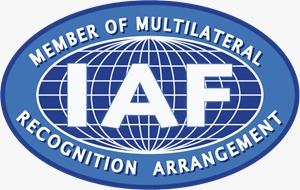Microsoft Azure Security
Microsoft Azure provides security features for customers to host their infrastructure and applications. The Microsoft Threat Intelligence Center is one of the security teams at Microsoft that encounters and mitigates threats.
A few years back, security was a weak point in the cloud environment but today we have the best cloud services offer stronger security than many businesses can achieve. Its benefits don’t come automatically so, the customer has to understand how the security features work and how they can be more beneficial to their business and protect them from unforeseen consequences.
Most common but not negligible points:
User Management: It includes the list of authorized people to have limited or full access as they need and that strong authentication mechanism are in places like MFA and password-less entry using secured keys.
Improve Passwords: Use of string combination of Alphanumeric and special characters and length of the password can minimize the chance of getting hacked.
Implement Role-Based Access Control: RBAC is a feature from which Administrator can control the access level for the rest of all users in the organization so that they don’t have unnecessary access to resources, a compromised one can’t do as much harm. Administrators have more time to locate the hijacked account and lock the attacker out of it. Roles under Azure Security include specialized ones such as Key Vault Contributor, Monitoring Reader, and Site Recovery Operator.
Operational Security: Azure Security Center is available under the Operations Management Suite, which also includes monitoring and log analytics. These tools help administrators to catch unusual behavior in applications, such as large numbers of errors or failures. Azure Advisor provides recommendations on availability, performance, and security. It identifies vulnerabilities and suggests specific actions for mitigating them. It’s configurable so that it generates recommendations only for subscriptions and resources where they’re wanted.
Application-level security: It is important in today’s world. Attackers try to sniff in packets that look legitimate at the network level but target weaknesses in software. Azure Application Gateway lets administrators set up multiple levels of protection.
→ Set Up Web Application Firewalls
→ Data Protection
→ Encrypt Sensitive Information
→ Protect Your Encryptions
Securing Azure Administration: Azure provides an excellent set of tools for running cloud software securely. However, they don’t do much good if the administration itself is not well protected. A compromised administrator account can result in all kinds of damage. Administrators should always use multi-factor authentication and strong passwords.
→ Minimize Administrative Access
→ Protect Login Information
Azure cloud software provides best quality security but that doesn’t mean that the administrators can sit back calmly. A thorough understanding of the available tools within Azure security and managing them to have security services.







[…] It enables us to centrally manage identities of database users and other Microsoft services with Azure Active Directory integration using multi-factor authentication and simplifies permission […]